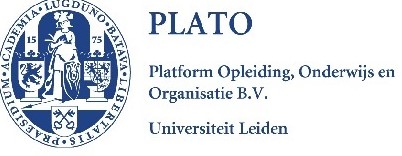January 15th 2021

Plato is a small research unit of the University of Leiden in the Netherlands. Since 1986 I am the director of PLATO. Our organization originally did research in education. Besides research, we did training and advisory work for schools and teacher training colleges. Throughout time however, our scope broadened. Learning remained our key interest, but our field of work extended. We researched and promoted professional development and lifelong learning in a variety of settings. I give three examples. I chose these examples also to illustrate why we took part in the Promise project.
Learning how to manage crises
Crisis management became one of the field in which we were active. Our focus was on the competences needed to allow authorities, and professionals to adequately fight, control, and manage crises. For me the challenge was to think of the didactics of the collective learning that is supposed to occur in simulated, or actual crisis management situations. We developed a methodology for that. Throughout the years we noticed that crisis management grew from an approach with distinct actors (such as authorities, police, ambulances fire brigade etc.) towards a more multidisciplinary approach.

Currently in the response to the Covid-19 crisis, we see that the number of disciplines involved has increased far beyond that. Economist, educationalists, youth experts, psychologists, and many others contribute to the strategies and actions to keep the crisis under control, or mitigate its impact. For that purpose they are in a continuous dialogue, in order to extend their knowledge and understanding of the virus and the crisis and extend the required action repertoire.
Heritage education
We took part in several heritage projects. We includes all possible kinds of heritage (natural and cultural; tangible and intangible). More specifically it may range from castles to monuments, and old cities, natural parcs, landscapes, to traditions, arts, music and songs).

Traditionally heritage education is seen as a way to convey information about heritage. We approached it differently. We wondered in what way heritage could provide a context for life long learning. It appeared that heritage contexts were rich learning environments, in which people can develop language, communication, entrepreneurial, creative and various other competences. To facilitate such learning in a way that is responsive and adaptive to the needs of learners, it was not enough to involve traditional museum staff , or parc rangers. It required a more multidisciplinary approach in which historians, biologists, anthropologist archeologist, but also technicians, ICT people and marketeers are be included. Close co-operation and exchange of views appeared necessary to make it successful.
Story telling

We were involved in projects on storytelling, one on training adult to tell stories to children; one on how to use story telling in second chance adult education, and one on how to use story telling in community building and integration processes. Again these projects made it clear, that in order to promote learning through stories, one cannot only contribute as a story teller. What is needed in addition to storytelling, is a mix of mental coaching, life style coaching, support in financial problems, career planning. Adult learners, are more than just learners; their development requires more than stories, or teaching. It demands a coordinated approach by various experts.
Promise
Professionals working together can only effectively do so if they are prepared and motivated to invade in each other’s fields of expertise to such an extent, that they become capable of composing approaches that are more than the sum of the distinct inputs. Mutual interprofessional learning is crucial. Only then will approaches be synergetic and effective. In the promise project I intend to further develop this concept of interprofessional learning including ways to turn the learning outcomes of it into development, improvement and change. That is why I consider this project promising.